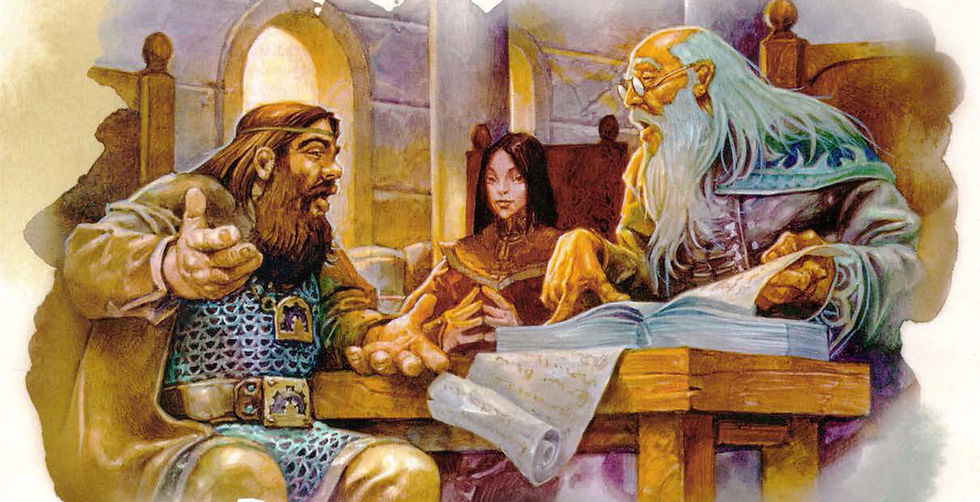How to Reveal Your Character's Backstory Without Forcing It
- helloshyann
- Aug 4, 2025
- 2 min read
Updated: Aug 11, 2025

Your backstory is one of the most powerful tools you have at the table. It’s what turns your character from a collection of stats into someone the group actually cares about. It’s the little spark that makes your goblin bard more than just “the green guy with the lute.” But here’s the catch: if you unload the whole thing all at once, you’re not giving anyone room to discover you. And discovery is where the magic happens.
Main Character Syndrome: The Good Kind and the Bad
First off, don't forget you are one of the main characters at the table. You’re here, you’re in the party, so you matter. So yes, despite some controversial opinions, it's okay to bring that main character energy sometimes. Swing for the fences. Just remember, your epic saga is only interesting when you find ways to include the rest of your party in it.
Think of your party like a band. You’ve got the lead guitar, bass, drums, maybe a cowbell if you’re feeling spicy. When everyone’s playing in sync, magic happens. When one person refuses to play along, you get awkward silence. And when it’s your solo, give it everything you’ve got, because the others are counting on you to bring the song home.
Let It Happen in the Story, Not to the Story
You don’t need to grab the narrative by the throat and scream, “TIME FOR MY TRAGIC BACKSTORY!” Instead, let it breathe. Let it slip out in conversation, in reaction to what’s happening at the table. Give us that telling glance when the villain uses a weapon you’ve seen before. Drop a quiet line of dialogue when you enter a place from your past. Let the players discover you, not endure you.
The Spotlight is a Shared Resource
When it’s your moment, take it. Own it. Make it unforgettable. And then, pass the ball.
Mention other characters in your scenes. Loop them in. When someone else is in focus, be the most engaged audience member they’ve got with in-character reactions, thoughtful questions, and callbacks to shared moments. Build the web between you.
Your backstory is not just your own, it’s part of the party’s story now. Treat it like a gift you are giving the table, not a speech you are delivering at them. The more you invest in others, the more they will invest in you. ORIGINAL CONCEPT & SOURCE: Jay Martin, Play Your Role



